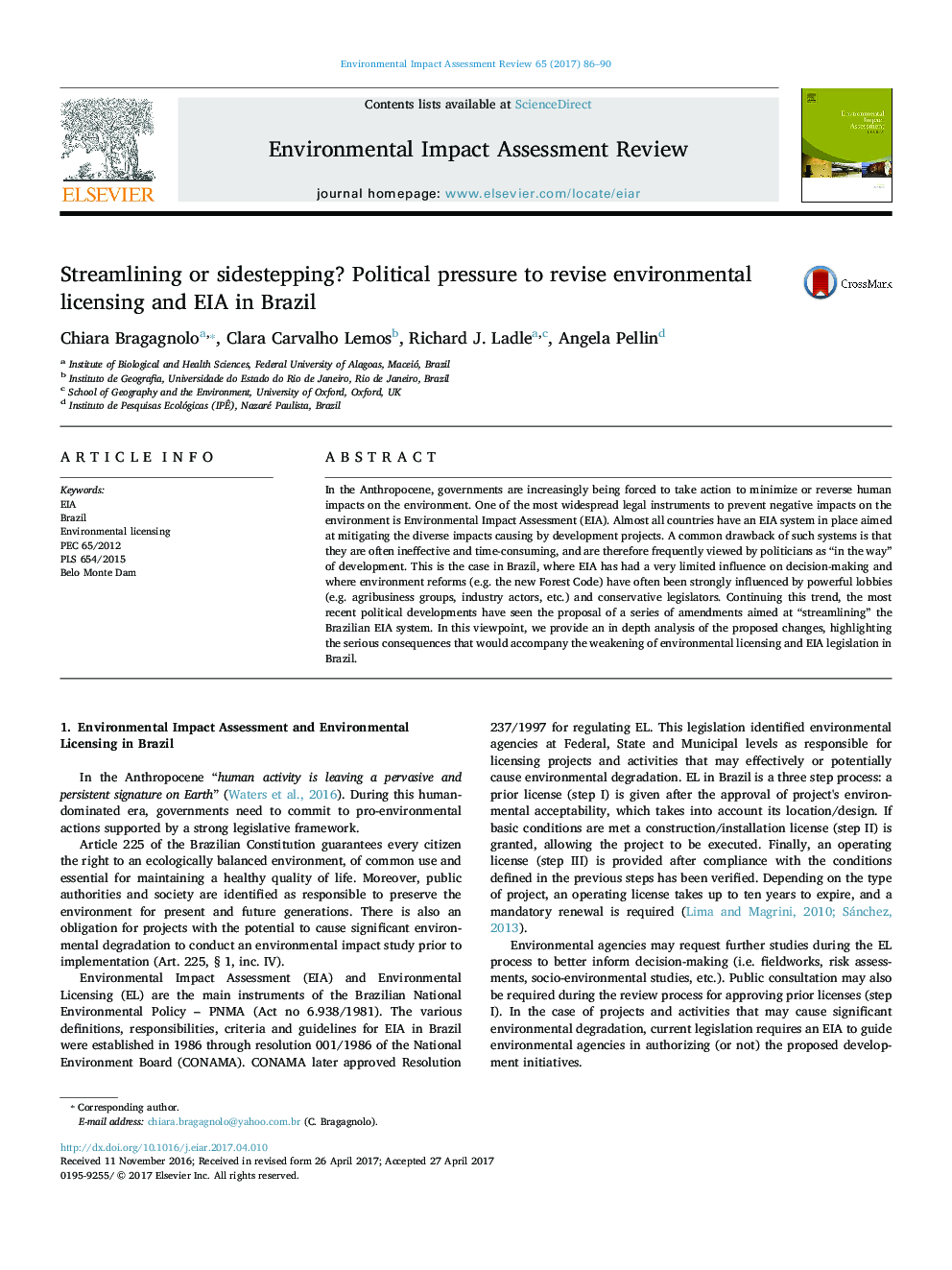| Article ID | Journal | Published Year | Pages | File Type |
|---|---|---|---|---|
| 5115589 | Environmental Impact Assessment Review | 2017 | 5 Pages |
Abstract
In the Anthropocene, governments are increasingly being forced to take action to minimize or reverse human impacts on the environment. One of the most widespread legal instruments to prevent negative impacts on the environment is Environmental Impact Assessment (EIA). Almost all countries have an EIA system in place aimed at mitigating the diverse impacts causing by development projects. A common drawback of such systems is that they are often ineffective and time-consuming, and are therefore frequently viewed by politicians as “in the way” of development. This is the case in Brazil, where EIA has had a very limited influence on decision-making and where environment reforms (e.g. the new Forest Code) have often been strongly influenced by powerful lobbies (e.g. agribusiness groups, industry actors, etc.) and conservative legislators. Continuing this trend, the most recent political developments have seen the proposal of a series of amendments aimed at “streamlining” the Brazilian EIA system. In this viewpoint, we provide an in depth analysis of the proposed changes, highlighting the serious consequences that would accompany the weakening of environmental licensing and EIA legislation in Brazil.
Keywords
Related Topics
Physical Sciences and Engineering
Energy
Renewable Energy, Sustainability and the Environment
Authors
Chiara Bragagnolo, Clara Carvalho Lemos, Richard J. Ladle, Angela Pellin,
